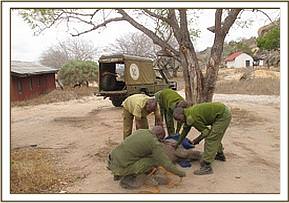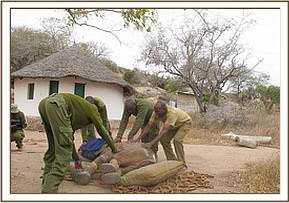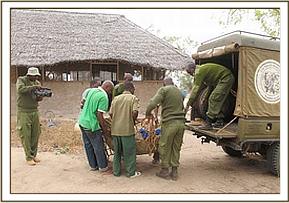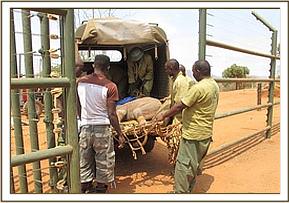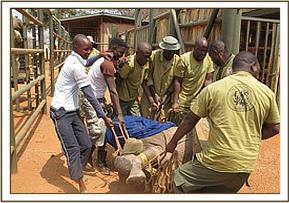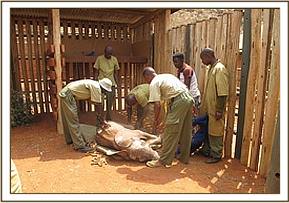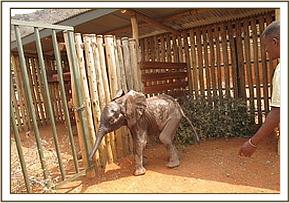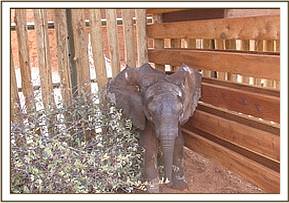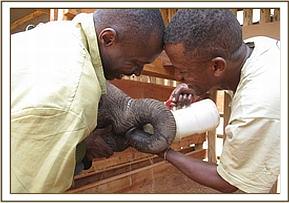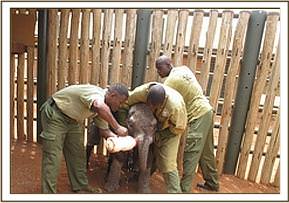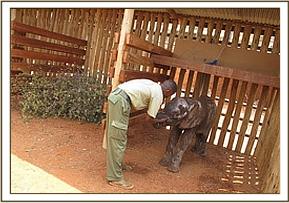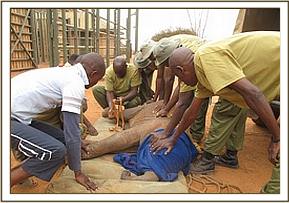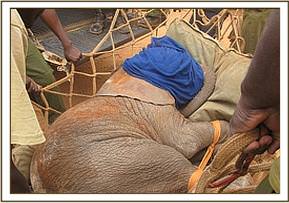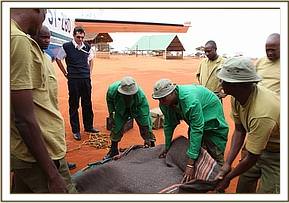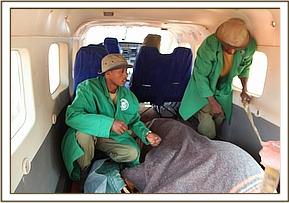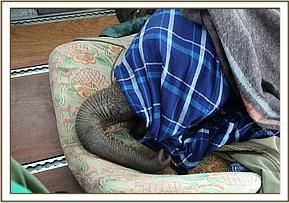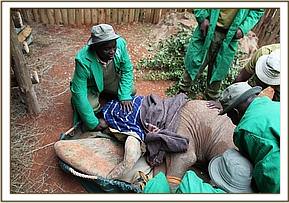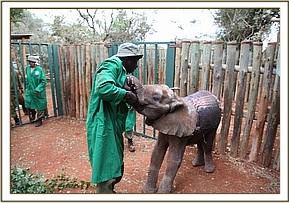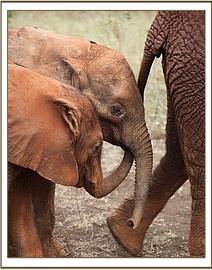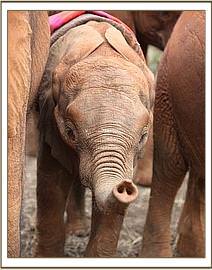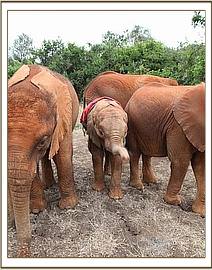

Gender
Male
Rescued date
29 July 2012
Rescue location
Unknown
Date of birth (estimate)
29 September 2011
Reason orphaned
Poaching
Age at rescue
9 months old (approx)
Date of passing
20 September 2012
The lone calf, desperate for water, was first sighted by the scouts of both Taita and Rukinga Ranches. They remained with the elephant, observing its pitiful plight as it wandered aimlessly exhausted, emaciated and thirsty, desperately trying to reach water at a water point called Tangi overwhelmed with hundreds of Somali Cattle. The remains of two recently poached female elephants were confirmed in the area, and given the condition of the calf who had clearly been without his mother for sometime, the scouts concluded as nighttime approached that they should capture him before he befell the same destiny as his mother.
They immediately reported this to the KWS authorities who confirmed that he should be captured and held safely overnight so that the rescue team could move in in daylight hours. Our Voi Elephant Keepers travelled there the following day, 29th July, and he was driven to the Voi stockades to await the arrival of the rescue plane to airlift him to the Nairobi Nursery.
Weak and in a pitiful state this little bull was so relieved to find himself near other elephants and humans that were kind and loving, with access to milk and water, that he was calmed very quickly and relished his good fortune. He has been named Nyika (The term commonly used for the arid scrubland comiphera bush that is indigenous to the area of his rescue, which was formally known as the Taru desert). His stools were pure mud to begin with, indicating the harsh conditions to which he was tragically subjected following the loss of his mother and her life sustaining milk.
We continue to monitor this calf very carefully, whose survival is by no means assured, in view of his weakened state. But he is indeed one of the few very fortunate orphaned elephants from that area that thanks to the kind actions of the Taita and Rukinga Scouts and the compassion of the authorities of KWS has been afforded another chance of life. We are proud at having been able to help in this way.
The lone calf, desperate for water, was first sighted by the scouts of both Taita and Rukinga Ranches. They remained with the elephant, observing its pitiful plight as it wandered aimlessly exhausted, emaciated and thirsty, desperately trying to reach water at a water point called Tangi overwhelmed with hundreds of Somali Cattle. The remains of two recently poached female elephants were confirmed in the area, and given the condition of the calf who had clearly been without his mother for sometime, the scouts concluded as nighttime approached that they should capture him before he befell the same destiny as his mother.

On 5th October 2025, Naserian introduced us to the latest addition to our extended elephant family — a beautiful baby girl, her second daughter.


Living Wild
Gender
Male
Age
10 years
Unit
Ithumba
Reason orphaned
Human-Wildlife Conflict
